Urban Coast Institute Artist in Residence Kimberly Callas, assistant professor in the Monmouth University Department of Art and Design, was interviewed in the Oct. 27 edition of the New Jersey-based arts podcast, The Stolen Hour, with host Dennis Dalelio. Callas discusses nature and the ocean’s influence on her art and life, her Discovering the Ecological Self project, her work with the UCI and more.
-
LISTEN: Professor Callas on the Stolen Hour Podcast
-
Herrington Encourages Reuse of Dredged Sediments for Resilience Projects in Journal
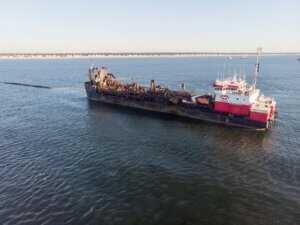 UCI Associate Director Thomas Herrington and Texas A&M University Center for Dredging Studies Director Ram Mohan collaborated on an article in the fall issue of the Journal of Marine Environmental Engineering titled “Coastal Resiliency Considerations for America’s Four Coasts: Preparing for 2100.” In the article, the authors make the case for more widespread reuse of sediments dredged from waterways and ports to counter the effects of sea level rise and climate change along America’s coasts.
UCI Associate Director Thomas Herrington and Texas A&M University Center for Dredging Studies Director Ram Mohan collaborated on an article in the fall issue of the Journal of Marine Environmental Engineering titled “Coastal Resiliency Considerations for America’s Four Coasts: Preparing for 2100.” In the article, the authors make the case for more widespread reuse of sediments dredged from waterways and ports to counter the effects of sea level rise and climate change along America’s coasts.Although Herrington and Mohan cite examples of how these materials have been successfully used to replenish eroded wetlands, they note that, “Permitting of these projects can be challenging as projects are typically reviewed by regulatory agencies as ‘disposal’ or ‘placement’ projects, as opposed to ecosystem restoration projects, which provide a distinct ecological uplift benefit.” The article calls for policy reforms to encourage the reuse of dredged materials and research that can help quantify the practice’s economic benefits.
Herrington serves as the journal’s editor in chief.
-
Video: Vilacoba Discusses Mid-Atlantic Ocean Planning on NOAA Webinar
UCI Communications Director Karl Vilacoba was a presenter on an Oct. 13 NOAA Central Library Seminar Series session covering regional ocean planning in the Mid-Atlantic and the work of the Mid-Atlantic Regional Council on the Ocean (MARCO). Vilacoba, who serves as project manager for MARCO’s Mid-Atlantic Ocean Data Portal, provided an overview of how the site is being used to inform ocean management decisions and previewed what data products are on the horizon.
-
Video: Current Issues in Global Governance of Whales Webinar
The Monmouth University Institute for Global Understanding (IGU) and Urban Coast Institute (UCI) kicked off the second season of their joint Global Ocean Governance Lecture Series on Oct. 13 with a panel discussion of international issues and challenges concerning the protection of whales. The discussion was moderated by Professor Randall Abate, director of the IGU, and included the following presentations and speakers:
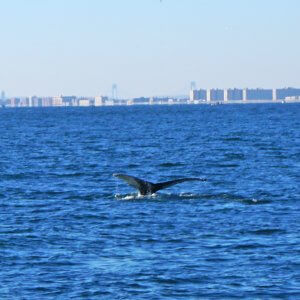 “Modernizing the International Whaling Commission’s Approach to Aboriginal Subsistence Whaling,” University of Alberta (Canada) Associate Professor of Law Cameron Jefferies
“Modernizing the International Whaling Commission’s Approach to Aboriginal Subsistence Whaling,” University of Alberta (Canada) Associate Professor of Law Cameron Jefferies- “Saving the Critically Endangered North Atlantic Right Whale: Challenges and Opportunities,” Natural Resources Defense Council (NRDC) Staff Scientist Francine Kershaw
- “Ensuring the Continuing Recovery: Protecting the Great Whales in the Context of 21st Century Challenges,” Wildlife Conservation Society Ocean Giants Program Director Howard Rosenbaum
Abstracts & Bios
Modernizing the International Whaling Commission’s Approach to Aboriginal Subsistence Whaling
ABSTRACT: Over the past three decades, the primary conflict at the International Whaling Commission (IWC) has centered around the future of internationally sanctioned commercial whaling. In the aftermath of the International Court of Justice’s Whaling in the Antarctic decision, Japan has ceased ‘Special Permit’ whaling in the Southern Ocean, has withdrawn from the IWC, and has stated its intention to only whale within its Exclusive Economic Zone. Other whaling nations, including Iceland, have reported a declining demand for whale meat and are looking towards a post-commercial whaling world. The next challenge that is positioned to come to the forefront of international whale management is the IWC’s approach to Aboriginal Subsistence Whaling (AWS). The IWC has, at least to a certain extent, recognized the cultural, nutritional and social importance of whaling for many of the world’s Indigenous peoples since its inception. The IWC’s current ASW procedure requires Contracting Governments to submit “needs statements” on behalf of Indigenous communities to the IWC for scientific scrutiny and, ultimately, Commission approval. This process does not afford Indigenous peoples the opportunity to participate in decision-making nor does it account for Indigenous rights from international (e.g., United Nations Declaration on the Rights of Indigenous Peoples and the International Covenant on Civil and Political Rights) or domestic legal orders. Canada withdrew from the IWC in 1981 citing, in part, concerns that the IWC’s ASW process failed to discharge Canada’s constitutional obligation to protect marine mammal harvesting rights for Indigenous peoples and this talk will use Canadian experience to explore the shortcomings of the IWC’s AWC process and the need for modernization.
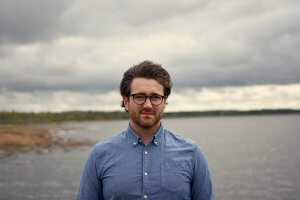 BIO: Cameron S.G. Jefferies, B.Sc., LL.B., LL.M., S.J.D., is an associate professor of law at the University of Alberta in Edmonton, Canada, where he specializes in international and domestic environmental law and energy law. He currently teaches Environmental Law, International Environmental Law, Basic Oil and Gas Law, and Oceans Law and Policy. He was admitted to the Law Society of Alberta in 2010. He completed his graduate degrees at the University of Virginia, School of Law, where he studied as a Fulbright Scholar. Before entering academia, Dr. Jefferies practiced at Field LLP in Edmonton, Alberta, and worked as a research associate at the Health Law Institute at the University of Alberta. He has published several book chapters and articles in Canadian and U.S. law journals, including the Energy Law Journal and the Journal of Environmental Law and Practice. He is the author of Marine Mammal Conservation and the Law of the Sea (OUP, 2016), co-author of Tort Law, 6th ed. (Carswell, 2017), and co-editor of Global Environmental Change and Innovation in International Environmental Law (CUP, 2018). He is an award-winning teacher and researcher and has been an invited speaker to a number of national and international conferences. In addition to his academic and professional curiosity in environmental law, oceans law, and wildlife conservation, Dr. Jefferies maintains a keen interest in public interest advocacy and remains active in promoting local environmental law reform.
BIO: Cameron S.G. Jefferies, B.Sc., LL.B., LL.M., S.J.D., is an associate professor of law at the University of Alberta in Edmonton, Canada, where he specializes in international and domestic environmental law and energy law. He currently teaches Environmental Law, International Environmental Law, Basic Oil and Gas Law, and Oceans Law and Policy. He was admitted to the Law Society of Alberta in 2010. He completed his graduate degrees at the University of Virginia, School of Law, where he studied as a Fulbright Scholar. Before entering academia, Dr. Jefferies practiced at Field LLP in Edmonton, Alberta, and worked as a research associate at the Health Law Institute at the University of Alberta. He has published several book chapters and articles in Canadian and U.S. law journals, including the Energy Law Journal and the Journal of Environmental Law and Practice. He is the author of Marine Mammal Conservation and the Law of the Sea (OUP, 2016), co-author of Tort Law, 6th ed. (Carswell, 2017), and co-editor of Global Environmental Change and Innovation in International Environmental Law (CUP, 2018). He is an award-winning teacher and researcher and has been an invited speaker to a number of national and international conferences. In addition to his academic and professional curiosity in environmental law, oceans law, and wildlife conservation, Dr. Jefferies maintains a keen interest in public interest advocacy and remains active in promoting local environmental law reform.Saving the Critically Endangered North Atlantic Right Whale: Challenges and Opportunities
ABSTRACT: After making a painstaking recovery from the impacts of industrialized whaling, the North Atlantic right whale is once again declining rapidly towards extinction. As climate change alters the distribution of their main prey, right whales – in hot pursuit – are moving into new areas and spending more time in habitats where they were once seasonal migrants. The result: shocking levels of mortality, morbidity, and reproductive decline resulting from entanglement in commercial fishing gear and vessel strikes. The fight to save the right whale from these impacts is further complicated by the need to advance offshore wind energy at a commercial scale in a way that will not introduce additional risk to the species. This presentation will speak to the challenges of reducing risk of entanglements in a dynamic ocean where fisheries reign, and the tightrope of considerations when advancing a new ocean industry in what are now some of the right whale’s most important habitats. We will then explore opportunities presented by technological innovations to both save the right whale and improve our resilience to climate change.
 BIO: Dr. Francine Kershaw uses the best available scientific information to advocate for improved protections for marine mammals related to a variety of issues, including ocean noise, ship strikes, and bycatch. She currently leads NRDC’s work to end large whale entanglements and dedicates a large part of her portfolio to advancing responsible offshore wind development. Still a whale population geneticist at heart, in her spare time she also advocates for improved uptake of genetic information into conservation policy decisions. Kershaw is an active member of the International Union for Conservation of Nature (IUCN) Marine Mammal Protected Area Task Force, the Global Ocean Biodiversity Initiative, and the Group on Earth Observations Biodiversity Observation Network Genetic Composition Working Group, and an associate member of the Indian Ocean Network for Cetacean Research. She holds a Ph.D. in ecology and evolutionary biology from Columbia University and is currently based in Greenville, South Carolina.
BIO: Dr. Francine Kershaw uses the best available scientific information to advocate for improved protections for marine mammals related to a variety of issues, including ocean noise, ship strikes, and bycatch. She currently leads NRDC’s work to end large whale entanglements and dedicates a large part of her portfolio to advancing responsible offshore wind development. Still a whale population geneticist at heart, in her spare time she also advocates for improved uptake of genetic information into conservation policy decisions. Kershaw is an active member of the International Union for Conservation of Nature (IUCN) Marine Mammal Protected Area Task Force, the Global Ocean Biodiversity Initiative, and the Group on Earth Observations Biodiversity Observation Network Genetic Composition Working Group, and an associate member of the Indian Ocean Network for Cetacean Research. She holds a Ph.D. in ecology and evolutionary biology from Columbia University and is currently based in Greenville, South Carolina.Ensuring the Continuing Recovery: Protecting the Great Whales in the Context of 21st Century Challenges
ABSTRACT: Whales and other marine life face many 21st century challenges, including bycatch (incidental entanglement in fishing gear), ship strikes, increasing levels of anthropogenic ocean noise, coastal development in essential habitats; and the impacts of oil spills and other ocean pollutants. The impacts from a changing climate also loom, and range from potentially shifting the abundance and distribution of essential prey species to exposing whales to more human activity in previously inaccessible places such as the Arctic. Dr. Rosenbaum will speak about how science, technology, and innovative approaches helps inform decision-making to better protect and minimize impacts to whales in the New York Bight and Arctic Beringia.
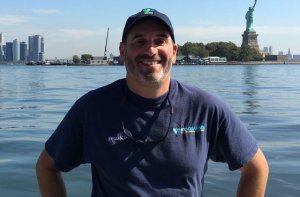 BIO: Dr. Howard Rosenbaum is a senior conservation scientist and director of the Wildlife Conservation Society’s (WCS) Ocean Giants Program, which aims to secure the future of whales, dolphins, and other marine species. He is a senior scientist at the American Museum of Natural History, core faculty member at Columbia University, a member of the International Union for Conservation of Nature (IUCN) Cetacean Specialist Group and Important Marine Mammal Area Task Force, and the International Whaling Commission’s Scientific Committee. Rosenbaum has led marine mammal conservation projects around the world, including the Indian, Pacific, and Atlantic oceans and the Arctic. For more than 30 years, Rosenbaum’s innovative science has helped protect marine species from current and emerging threats in their most important habitats. In the New York Bight, Rosenbaum leads WCS’s efforts for research and conservation of marine mammals, which includes a collaborative effort to use state-of-the-art near real-time acoustic monitoring and other technologies to study whales and ocean noise. Rosenbaum is a member of New York’s (NYSERDA) Environmental Technical Working Group and on the Specialist Committee for Best Management Practices related to Offshore Wind Development. Rosenbaum has also been a subject matter expert for two past Bureau of Ocean Energy Management workshops related to marine mammals and offshore wind development, and recently served on IUCN’s panel on Mitigating Biodiversity Impacts to Wind Energy Development. He has authored 95 peer-reviewed publications, co-edited a book on genomics, and his work has been featured widely in many popular media outlets. Rosenbaum grew up on Long Island and earned his Ph.D. from Yale University.
BIO: Dr. Howard Rosenbaum is a senior conservation scientist and director of the Wildlife Conservation Society’s (WCS) Ocean Giants Program, which aims to secure the future of whales, dolphins, and other marine species. He is a senior scientist at the American Museum of Natural History, core faculty member at Columbia University, a member of the International Union for Conservation of Nature (IUCN) Cetacean Specialist Group and Important Marine Mammal Area Task Force, and the International Whaling Commission’s Scientific Committee. Rosenbaum has led marine mammal conservation projects around the world, including the Indian, Pacific, and Atlantic oceans and the Arctic. For more than 30 years, Rosenbaum’s innovative science has helped protect marine species from current and emerging threats in their most important habitats. In the New York Bight, Rosenbaum leads WCS’s efforts for research and conservation of marine mammals, which includes a collaborative effort to use state-of-the-art near real-time acoustic monitoring and other technologies to study whales and ocean noise. Rosenbaum is a member of New York’s (NYSERDA) Environmental Technical Working Group and on the Specialist Committee for Best Management Practices related to Offshore Wind Development. Rosenbaum has also been a subject matter expert for two past Bureau of Ocean Energy Management workshops related to marine mammals and offshore wind development, and recently served on IUCN’s panel on Mitigating Biodiversity Impacts to Wind Energy Development. He has authored 95 peer-reviewed publications, co-edited a book on genomics, and his work has been featured widely in many popular media outlets. Rosenbaum grew up on Long Island and earned his Ph.D. from Yale University. -
Abate Discusses Youth and Indigenous Voices in Climate Justice at Vermont, Montana Law School Events
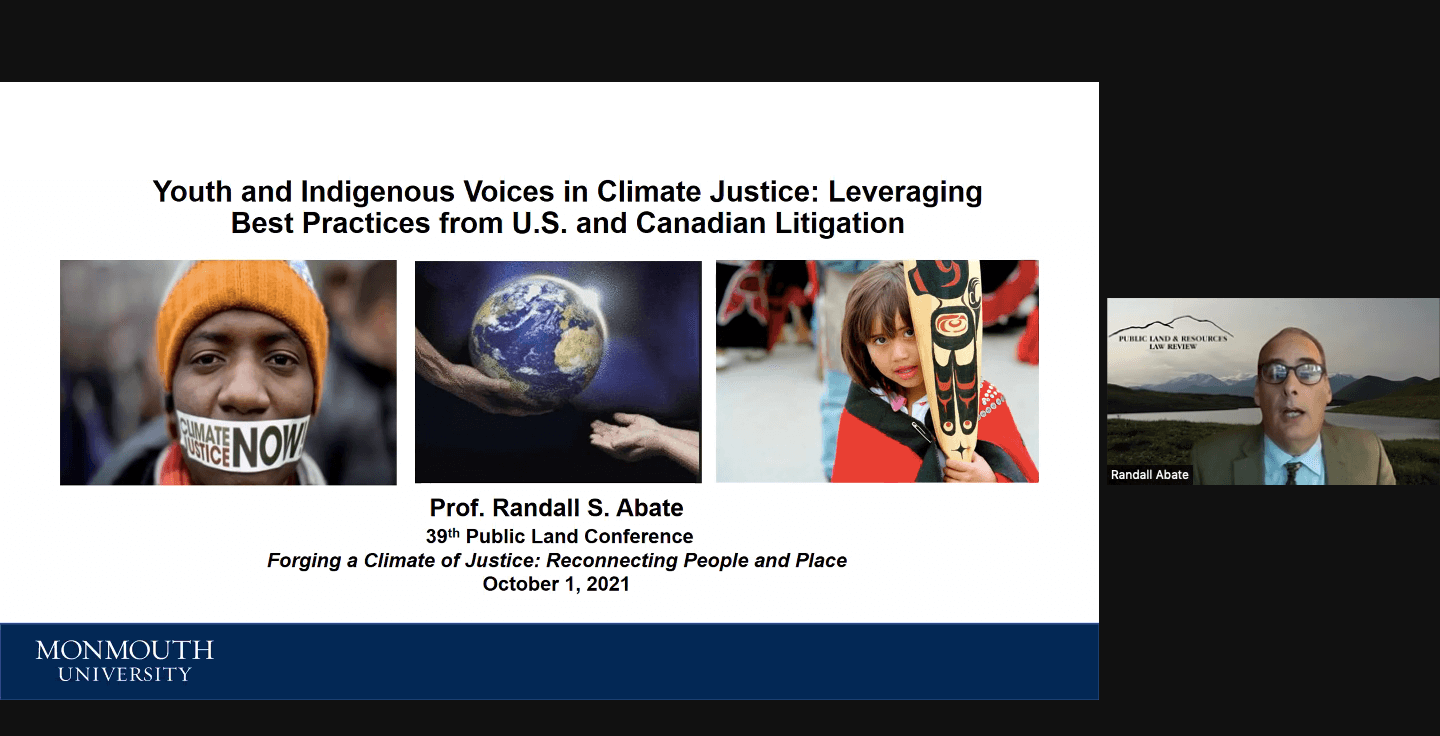
Rechnitz Family/UCI Endowed Chair in Marine and Environmental Law and Policy Randall Abate delivered two recent presentations on his work-in-progress article, “Youth and Indigenous Voices in Climate Justice: Leveraging Best Practices from U.S. and Canadian Litigation.” The article will be published in the Spring 2022 issue of the Public Land and Resources Law Review.
Climate justice litigation seeks to secure remedies for communities that have been and will be disproportionately burdened by climate change impacts. The article examines the origins and evolution of climate justice cases in the U.S. and Canada and makes a series of recommendations for helping secure successful outcomes, including capitalizing on the intersections between youth and indigenous claims in future litigation.
Abate delivered the first presentation on Sept. 25 at the 12th Annual Colloquium on Environmental Law Scholarship at Vermont Law School. Fifty legal scholars from 15 states and five countries participated in the colloquium. Click here to view the program.
Abate delivered a second presentation on the article on Oct. 1 at the 39th Annual Public Land Law Conference, hosted by the University of Montana School of Law. The conference theme was “Forging a Climate of Justice: Reconnecting People and Place.”
-
Student Q&A: Riya Ajmera on Mitigating Offshore Wind Farm Impacts on Marine Environments
 The environmental gains that will be seen by replacing carbon-based energy sources with power generated by offshore wind farms are oft-discussed, but questions remain about the impacts that construction of this infrastructure could have on marine life and habitats. Monmouth University student Riya Ajmera recently completed a white paper that examines the nature and scope of the risks in the Mid-Atlantic and science-based policy options that can mitigate harm to marine species and promote marine biodiversity.
The environmental gains that will be seen by replacing carbon-based energy sources with power generated by offshore wind farms are oft-discussed, but questions remain about the impacts that construction of this infrastructure could have on marine life and habitats. Monmouth University student Riya Ajmera recently completed a white paper that examines the nature and scope of the risks in the Mid-Atlantic and science-based policy options that can mitigate harm to marine species and promote marine biodiversity.Ajmera conducted her research over the summer with support from the UCI’s Heidi Lynn Sculthorpe Scholars Program and guidance from faculty mentor Randall Abate, Rechnitz Family/UCI endowed chair in marine and environmental law and policy. Experts interviewed for the project include Julia Beaty, fishery management specialist, Mid-Atlantic Fishery Management Council; Doug Copeland, development manager, Atlantic Shores Offshore Wind; Tim Dillingham, executive director, American Littoral Society; Jim Ferris, bureau chief of new technology, Clean Energy Division, New Jersey Board of Public Utilities (NJ BPU); Suzanne Hornick, founder, Ocean City, New Jersey Flooding Committee; and Kris Ohleth, executive director, Special Initiative on Offshore Wind.
Scroll below to read our Q&A with Ajmera and read her paper in its entirety.
Paper title: Mutual Benefits for Offshore Wind Energy in the Mid-Atlantic: Science and Policy Strategies to Mitigate Harm to Marine Species and Maximize Benefits for Renewable Energy
Student Researcher: Riya Ajmera
Year and Major: Junior, Chemistry with a Concentration in Biochemistry/Minor in Journalism
Q: Among the three impacts you cover from offshore wind to human communities are the disruption to commercial fishing and the possibility that the visibility of turbines on the horizon could drive away tourists. Some readers might not be familiar with the third category, which covers Native American cultural impacts. Can you explain what the concern is and how it is being approached?
Native American communities have protected land that is essential to their history and culture. Some of these lands have been buried due to rising sea levels from the last ice age. Offshore wind turbines can put those lands at risk.
The Bureau of Ocean Energy Management (BOEM) and offshore wind companies are aware of this concern. For the Vineyard Project, which can serve as an exemplar of the process for other offshore wind sites in the Mid-Atlantic, BOEM has signed a Memorandum of Agreement with the offshore wind company regarding various Native American properties that are critical to protect. The Agreement addresses mitigation measures and avoidance of these lands for this project. Furthermore, partnerships such as the Atlantic Shores Offshore Wind, LLC, hold mandatory meetings with Native American tribes. Proper communication with the tribes allows for direct and open acknowledgement of how the tribes perceive offshore wind projects and what measures they seek for the protection of their cultural resources.
Q: Your paper also delves into impacts on marine life, including questions on how construction noise could affect marine mammals with sound sensitivities. What do we know about this from the experience in Europe and other research that’s been done to date?
Various studies have addressed marine species’ responses to offshore wind turbines. One study examined the migration patterns of porpoises in response to the pile-driving construction at the first German offshore wind farm. The study concluded that all of the porpoises near the construction site had moved somewhere else, with the first sighting seen 20 km away. The study also determined that porpoises were seen around the site again after the piling phase had ended. However, the return of the species did not alleviate the concern that the species had decreased fitness due to its fearful flight response and also being moved away from its habitat into an area that is unknown to them. This behavior may occur in other marine species, which raises concerns regarding the unpredictability of the impacts on marine species in implementing offshore wind facilities.
Another example is based on the endangered North Atlantic right whale. Past research has shown that vessel strikes are a major cause of injury and death of right whales. This vulnerability is a concern given the amount of vessel traffic during the construction of the turbines. BOEM indicated in the Vineyard Report that vessels must travel at speeds of less than 10 knots because studies have shown that the greatest risk of injury to a large whale is with speeds from 8.6 to 15 knots. However, even a collision with a large ship can be harmful to the whale species. The only mitigation efforts in response to this concern have been to slow down and stop vessels when any sighting of a large whale or right whale occurs within 328 feet of the vessel.
Q: You offer some recommendations in the areas of policy reform and improving transparency and public outreach around offshore wind projects. What are some of the steps that can be taken to make these processes better for stakeholders?
These projects are vast, complicated, and multi-faceted efforts that need to be coordinated so every participant in the offshore wind industry siting process is working together. The most significant resolution for this is proper communication and collaboration. First, there needs to be more communication among BOEM, NOAA, state agencies such as NJDEP, and the construction companies. A related concern is the need for greater communication in the application process. Finally, the level of transparency in the process can be improved. These transparency concerns have three dimensions regarding what information needs to be made available to the public: 1) dissemination of key information on the offshore wind turbines and responses to concerns from the public; 2) clarification of what information cannot be made available to the public at certain phases due to confidentiality concerns; and 3) identification of what role the public holds in the process and what opportunities are available for public participation.
The second area that needs attention is the focus placed on research and mitigation efforts. There is not much research on offshore wind turbines in the U.S. because it is still a new area, which makes the research that is conducted during these processes highly valuable for the future of offshore wind in the nation. However, if all of the turbines are constructed in a relatively short period, there will not be enough time for the research that is conducted to be applied to future offshore wind facilities. Moreover, given that much of the mitigation efforts for large whales and right whales relies exclusively on the eyes of the workers, the lives of these vulnerable marine species are at the mercy of the level of care that the workers exercise. There should be a mandatory training program for these workers in sighting species and how to properly and safely implement these mandatory mitigation efforts.
-
Student Q&A: Kyra Velock on Implementing the Biden Administration’s ’30 by 30’ Initiative in the Mid-Atlantic
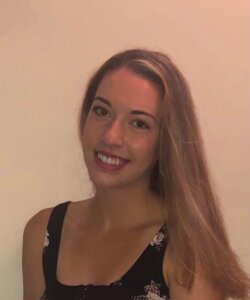 Monmouth University student Kyra Velock recently authored a white paper that examines challenges and opportunities for the Biden administration to advance its America the Beautiful initiative in the Mid-Atlantic region. Also known as the “30 by 30” initiative, the plan seeks to conserve and protect 30% of U.S. land and ocean areas by the year 2030.
Monmouth University student Kyra Velock recently authored a white paper that examines challenges and opportunities for the Biden administration to advance its America the Beautiful initiative in the Mid-Atlantic region. Also known as the “30 by 30” initiative, the plan seeks to conserve and protect 30% of U.S. land and ocean areas by the year 2030.Velock researched the topic over the summer with funding support from the UCI’s Heidi Lynn Sculthorpe Scholars Program. Rechnitz Family/UCI Endowed Chair in Marine and Environmental Law and Policy Randall Abate served as a faculty mentor on the project.
Experts interviewed include: Monmouth University Endowed Associated Professor of Marine Science Jason Adolf; Wildlife Conservation Society (WCS) New York Seascape Program Director Merry Camhi; WCS New York Seascape Program Associate Director Noah Chesnin; American Littoral Society Executive Director Tim Dillingham; New Jersey Department of Environmental Protection Environmental Specialist Kevin Hassell; Pew Charitable Trusts Senior Officer for International Conservation Masha Kalinina; and Monmouth University School of Science Assistant Dean John Tiedemann.
Scroll below to read our Q&A with Velock and click here to view her white paper in its entirety.
Paper Title: “The ‘30 by 30’ Initiative: Implementing Area-Based Management Strategies to Confront Marine Biodiversity Loss in the Mid-Atlantic Region”
Student Researcher: Kyra Velock
Year and Major: Senior, Health Promotion
Q: What are some challenges unique to the Mid-Atlantic that the Biden administration may face in carrying out its “30 by 30″/”America the Beautiful” initiative?
The Mid-Atlantic has a long history of commercial and recreational fishing, as well as protected fishing practices in many indigenous communities in the region. Some challenges include commercial, recreational, and cultural resistance to implementation of more marine protected areas (MPAs) in the Mid-Atlantic because of real and perceived impacts to fishing access. Many fishers also oppose implementation of offshore wind farms, which could be valuable tools in reaching the 30 by 30 goal, because these facilities also restrict access to significant areas of the ocean. Fishing communities also generally don’t believe that offshore wind farms can aid in fisheries conservation. Lastly, ecosystem-based management methods of conservation are still a new concept in ocean governance; therefore, reliable science and research are essential to identify areas eligible for designation as MPAs. It may take a longer time to connect science, policy, and outreach to stakeholders in the Mid-Atlantic to fulfill the 30 by 30 objectives.
Q: The paper examines several policy tools for protecting ocean areas, such as the designation of marine protected areas, marine sanctuaries, and national monuments. Do you see any of them holding particular promise for the Mid-Atlantic?
I think “de facto” and “under-the-radar” marine protected areas (MPAs) hold the most promise for the Mid-Atlantic region. These are regions of the ocean where human activity is limited or restricted for reasons other than biodiversity protection and conservation. They are not considered to be “official” MPAs, so there is no lengthy congressional process to designate this type of MPA. Some examples include offshore wind farms (de facto) and other effective conservation methods (OECMs), which may have different reasons for restricting human access, yet they offer additional biodiversity and habitat protection nonetheless.
Q: You explore objections from the fishing industry to the designation of marine protected areas and other measures that limit their ability to fish. What steps can the government take to ease these conflicts and find palatable solutions?
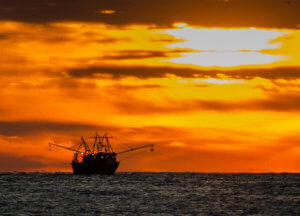 One of the most important steps the government can take to ease these conflicts is to involve fishing communities in the science and the process of establishing new MPAs because fishers often feel excluded from the designation process. When an area is designated to promote fish sustainability, such as a spawning ground for fish or to protect significant ecological features, it is important to involve fishers in the rationale behind the MPA. Including fishermen in the process of designating an MPA is also beneficial because they are more familiar with the marine environment than most government officials and policymakers.
One of the most important steps the government can take to ease these conflicts is to involve fishing communities in the science and the process of establishing new MPAs because fishers often feel excluded from the designation process. When an area is designated to promote fish sustainability, such as a spawning ground for fish or to protect significant ecological features, it is important to involve fishers in the rationale behind the MPA. Including fishermen in the process of designating an MPA is also beneficial because they are more familiar with the marine environment than most government officials and policymakers.Q: What reforms could the administration enact to help recover marine species and accomplish its 30 by 30 goals?
Reforming the Endangered Species Act (ESA) and the Magnuson-Stevens Fishery Conservation and Management Act (MSA) may promote the recovery of marine species and protect biodiversity. In the paper, I recommend additional protections for endangered and threatened marine species by incorporating MPA objectives and characteristics into these legal frameworks for an added layer of protection from climate change-related threats. Through these adjustments, habitat degradation would decrease, food webs would remain more stable, and human disturbances would be more limited.
-
Abate to Deliver XIM University Talk on ‘Climate Change & the Voiceless’ Sept. 27
ConXerv, the Committee for Sustainability at XIM University in Odisha, India, will host Rechnitz Family/UCI Endowed Chair in Marine and Environmental Law and Policy Randall Abate to provide a Sept. 27 online lecture on Climate Change and the Voiceless: Protecting Future Generations, Wildlife, and Natural Resources. The book talk is being presented as part of an immersion course offered by the university on sustainable development goals for climate action.
The event is free and open to all interested participants. Click here for registration and additional details.
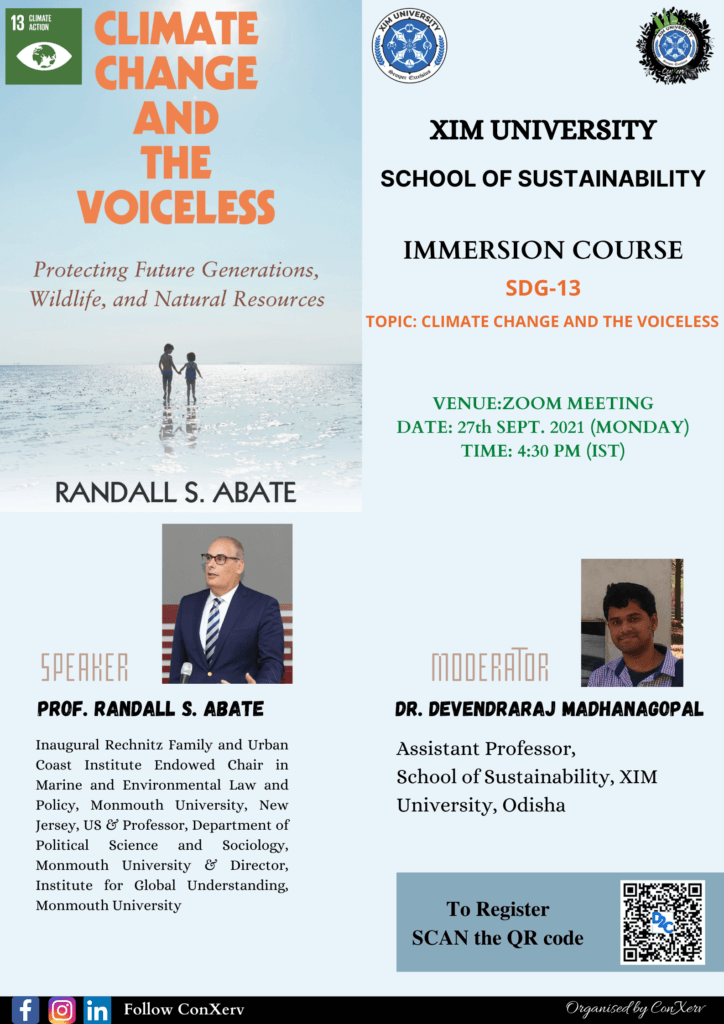
-
VIDEO: The Empirics of Equity: Examining Tuna Management Decisions in the Western and Central Pacific and Indian Oceans
The UCI’s Marine and Environmental Speaker Series welcomed Angela Abolhassani, postdoctoral fellow for the Ocean Nexus Center at the University of Washington, on Sept. 22 to deliver the virtual lecture, “The Empirics of Equity: Examining Tuna Management Decisions in the Western and Central Pacific and Indian Oceans.”
An open Q&A session was held following the presentation. The discussion was moderated by Rechnitz Family/UCI Endowed Chair in Marine Environmental Law and Policy Randall Abate, who also serves as director of the Monmouth University Institute for Global Understanding.
Lecture Abstract: Equity issues are often foregrounded in intergovernmental negotiations that address transboundary environmental problems. However, while equity issues are a common feature of negotiations and the subject of a large literature on international environmental law and governance, equity itself has been subject to little empirical study. Limited research has been conducted investigating how states negotiate equity and what forms of equity are ultimately reflected in negotiation outcomes.
This presentation will discuss an empirical study of equity in transboundary tuna management. Tuna stocks are currently managed by a collection of five intergovernmental organizations called “tuna regional fisheries management organizations” (TRFMOs). These organizations assemble states at the regional scale to cooperate for the conservation and management of tuna stocks that cross national and international boundaries under international law. TRFMOs derive their management authority from treaty law agreed to by member states and annually adopt regulatory measures on tuna fishing activities in their regions. Equity issues within TRFMOs often emanate from tensions that arise between the conflicting interests of developing coastal states, which possess resource rights to tuna stocks, and industrialized fishing states, which flag vessels that track and harvest tuna stocks.
This study examined the law and practice of two TRFMOs—the Western and Central Pacific Fisheries Commission and the Indian Ocean Tuna Commission—to determine how these organizations respond to equity issues arising from their work. Ultimately, both organizations performed poorly in applying legal commitments to equity to specific management decisions. This finding corroborates the small but robust empirical literature on equity, which indicates that states struggle to apply broad, equitable principles to specific decisions. Perhaps most interestingly, this presentation will discuss the principal finding of the study, which was that legal commitments to equity provided negotiators with a discursive flexibility to reach compromises and produce management decisions.
 About the Speaker: Dr. Angela Abolhassani is a postdoctoral fellow for the Ocean Nexus Center at the University of Washington. She has studied transboundary tuna management from an interdisciplinary perspective for nearly a decade. Her work is primarily concerned with improving the equity outcomes of tuna management for developing coastal states. In 2020, she completed her Ph.D. with the University of Tasmania, which was a joint project between the Faculty of Law and Institute for Marine and Antarctic Studies. Prior to her Ph.D., she completed an honors thesis at Arizona State University which applied common pool resource theory to management of the South Pacific albacore tuna fishery. Dr. Abolhassani has also worked in the intergovernmental settings she studies, including with the United Nations Food and Agriculture Organization, the Western and Central Pacific Fisheries Commission, and the Commission for the Conservation of Antarctic Marine Living Resources.
About the Speaker: Dr. Angela Abolhassani is a postdoctoral fellow for the Ocean Nexus Center at the University of Washington. She has studied transboundary tuna management from an interdisciplinary perspective for nearly a decade. Her work is primarily concerned with improving the equity outcomes of tuna management for developing coastal states. In 2020, she completed her Ph.D. with the University of Tasmania, which was a joint project between the Faculty of Law and Institute for Marine and Antarctic Studies. Prior to her Ph.D., she completed an honors thesis at Arizona State University which applied common pool resource theory to management of the South Pacific albacore tuna fishery. Dr. Abolhassani has also worked in the intergovernmental settings she studies, including with the United Nations Food and Agriculture Organization, the Western and Central Pacific Fisheries Commission, and the Commission for the Conservation of Antarctic Marine Living Resources. -
WATCH: Port Access Route Studies Update & Map Data Webinar
UCI Communications Director Karl Vilacoba moderated and presented on a Sept. 14 edition of the Mid-Atlantic Ocean Data Portal’s “How Tuesday” webinar series that provided updates on a series of U.S. Coast Guard Port Access Route Studies (PARS) focused on major East Coast ports. The session was hosted by the Mid-Atlantic Regional Council on the Ocean in partnership with the Coast Guard and Northeast Regional Ocean Council.
Coast Guard personnel presented information on findings, public comment opportunities and next steps for studies concentrated on the Northern New York Bight and New Jersey Coast/Delaware Bay areas and participated in a Q&A session with attendees. In addition, demonstrations were provided for Coast Guard GIS web tools and map data on the Mid-Atlantic and Northeast ocean data portals that can be used to explore the studies and their recommendations in further depth.
